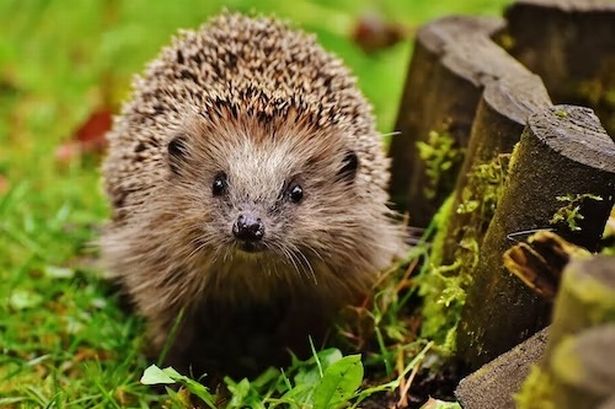A warning has been issued to anyone who is planning to go out for a walk during the warmer months.
Many people will be looking forward to the good weather, with longer days and sunshine. The ECHO previously reported on the Met Office's verdict on a three-week heatwave. The Met Office predicts temperatures will rise through the latter part of this month.
But while many will be rushing to make the most of the decent weather and spending more time outdoors, people are being urged to be more mindful of the wildlife. In particular, hedgehogs.
READ MORE: 24 words that don't mean what non-Scousers think they mean
Kelly Leyland, of Haydock Hedgehog Helpers Rescue, said she is seeing an increase in the number of sick and injured hedgehogs coming to her rescue as she urges people to remain vigilant.
In just four years, over 900 animals have so far been helped, being offered first aid and rehabilitation. As hedgehogs are listed as vulnerable to extinction in the UK, Kelly says more needs to be done to protect the wildlife.
She said: "We receive no funding beyond the kind donations of members of the public, and we can only save hedgehog in need if members of the public know what to do to get them the help we offer. Hedgehogs are nocturnal so most of us don’t even know we have them in our gardens until we find one in distress or need.
"The line I teach in my outreach and education talks is “out in the day? Not ok!”. A hedgehog out in the day, even if it appears uninjured, needs help. There is an exception to this within breeding months (from late April-October) as an adult mother hedgehog may come out in the day but will be moving with purpose.
"But if in doubt, contact a rescue and we can ask the appropriate questions to see if it is indeed a mother or a cause for concern. Clear cut instances of a hedgehog needing our help are if they are lay on their side, curled up out in the open, lay on their fronts ‘starfishing’, are being harassed by birds and/or, walking in circles, or if you can see any injuries."
Orphaned hedgehogs are also a concern, those smaller than an orange and if seen, these need to be placed in a high sided box such as the black recycling boxes, and put either an old towel or lots of shredded newspaper in there for it to hide under. Adding a warm hot water bottle wrapped in a towel at one end of the box can be a life saver.
You can also offer it a shallow dish or water, but no food. It needs to be kept in a quiet place, despite how cute they are, they are wild animals and will be scared of humans, Kelly said. A local rescue will then need to be contacted.
Kelly added: "One of the biggest barriers we face are well-meaning members of the public who think that maybe the hedgehog or hoglet just needs feeding up, and then bring it to the rescue a few days later when it becomes very unwell or unresponsive. These cases have high mortality rates and it is heart-breaking when we know that it would have stood a better chance had it be brought in sooner.
"Hoglets are adorable, but they need to be kept in an incubator at around 30-35c, be syringe feed a certain milk substitute or food, and may not be able to toilet by itself either. Hoglets are also prone to complications such as anal prolapses, cryptosporidium, and aspiration pneumonia.
"Of course, there are many things you can do to support hedgehogs to prevent or minimise hedgehogs becoming in need in the first place. Hedgehogs used to be mainly countryside animals, but research shows they are largely preferring urban settings, so our gardens are becoming their home range."
Creating 'hedgehog highways' can help and once in a garden, they need to be safe from danger. For example, an exit ramp or shallow end of a pond will prevent them from drowning, a grid cover will prevent them falling in and becoming stuck, or checking long grass before using a strimmer.
Using natural or humane pest controls will also prevent poisoning. Cat food can also be provided and natural shelter or creating a hedgehog house somewhere in your garden. Kelly said: Hedgehogs all have their own individual personalities, with their own quirks and habits.
"It’s an absolute privilege to work with these beautiful creatures. It genuinely makes my heart happy when I see them grow and heal, and get well enough to be released back into the wild. We simply must do all we can for these animals, even if you do one or two things mentioned, it adds to the mosaic of other people and gardens doing the same thing, and that’s when positive change happens."
READ NEXT:
'Filthy' London Road restaurant where vinegar used to clean surfaces
24 words that don't mean what non-Scousers think they mean
Merseyrail address passengers' common complaint over new trains
Man stashed Skorpion machine gun inside a pillow case in his airing cupboard
Boots shoppers praise 'glowy' £14 foundation that's 'better than Charlotte Tilbury'

